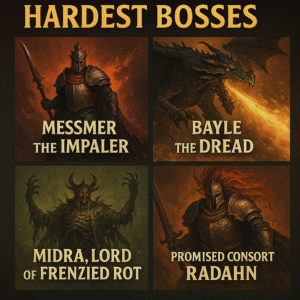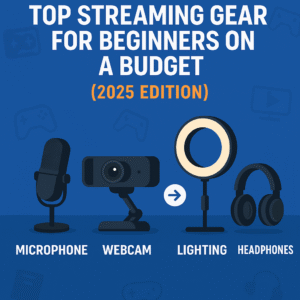Artificial Intelligence (AI) isn’t just a buzzword in tech anymore—it’s completely reshaping the way games are created, played, and experienced. In 2025, we’re witnessing a revolution driven by some of the most powerful players in the industry: OpenAI, NVIDIA, and Unreal Engine 6. From smarter NPCs to lifelike environments and player-personalized experiences, AI is the driving force behind the next era of gaming.
Let’s break down exactly how these tech giants are transforming the gaming landscape—and what that means for gamers and developers alike.
The Rise of AI in Gaming
AI has always played a role in gaming—remember the enemy pathing in early RTS games or simple AI companions in FPS titles? But the AI of 2025 is far more advanced. It can learn, adapt, create, and even converse.
We’re no longer just programming behaviors. We’re training models.
This shift opens doors to:
- Dynamic, responsive NPCs
- Procedural storytelling
- Personalized gameplay
- Smarter difficulty scaling
- Real-time environment changes
The power behind this transformation? Companies like OpenAI, NVIDIA, and Epic Games (the creators of Unreal Engine 6).
OpenAI: Giving NPCs Brains and Personality
OpenAI’s technology—once used in chatbots and writing tools—is now making its way into games. Imagine talking to an NPC that remembers your past interactions, adjusts its behavior, and even develops a unique personality over time.
With models like ChatGPT and Codex, developers can:
- Embed conversational AI into NPCs for natural, lifelike dialogue
- Script branching quests dynamically based on player decisions
- Enable reactive storytelling—where the world changes based on your words, not just actions
Example in Development: Indie RPG studio MythicForge is working on a game where the entire village of NPCs has been trained using OpenAI models. Each character responds uniquely to your actions—and no two players experience the same story.
NVIDIA: Accelerating AI at Every Frame
While OpenAI powers the brains, NVIDIA powers the performance.
NVIDIA’s GPUs and tools like DLSS 4.0, ACE (Avatar Cloud Engine), and Omniverse are giving developers real-time generative AI capabilities. These tools:
- Generate realistic facial animations from voice input
- Render large-scale environments with minimal processing
- Allow for AI-driven voice syncing and emotion modeling
With RTX 5000 series GPUs, NVIDIA has created a platform where AI doesn’t just assist—it creates.
“AI is no longer a tool we use at the backend—it’s now part of the creative process,” says Lisa Campbell, lead engineer at SilverPixel Studios.
Emerging Use Case: A multiplayer co-op shooter in development is using ACE to allow enemies to negotiate or surrender based on your play style. One playthrough might be high-octane, the next a tense standoff.
Unreal Engine 6: AI Meets Immersion
Released in early 2025, Unreal Engine 6 (UE6) takes the foundation laid by UE5 and brings AI-driven development to the forefront.
New features include:
- MetaHuman AI Framework: NPCs with simulated memories and behaviors
- WorldSense: Environments that react to your actions via AI
- AutoNarrative Tools: Real-time story and quest generation
UE6 makes it easier than ever for small teams—or even solo developers—to create deeply interactive worlds with believable characters.
Procedural Design with AI
Level design has always been labor-intensive. UE6 integrates AI to build and adjust game worlds on the fly, tailored to the player’s journey. Think AI-generated towns, enemies, loot, and even side quests.
The Impact on Game Genres
AI isn’t just a tool—it’s a genre-definer. Here’s how different types of games are evolving with AI:
RPGs
AI allows for:
- Deep, responsive character dialogue
- Moral dilemmas shaped by player behavior
- Organic world-building and lore development
FPS/Tactical Shooters
- Enemies adapt in real-time
- AI teammates take initiative (without being annoying!)
- Environments change tactically based on player movement
Survival Games
- Procedural resource placement
- NPC factions with AI-governed politics and diplomacy
- Real-time ecological balance
Indie Games
AI levels the playing field—solo devs can create rich experiences without massive teams. Think dynamic storytelling in pixel-art games, or responsive NPCs in cozy sims.
Ethical Questions & Challenges
With great power comes… weird questions.
- Data privacy: If NPCs remember you, what data is stored?
- Emotional manipulation: Should AI be allowed to simulate human emotion too well?
- Bias: How do we prevent AI from reflecting harmful stereotypes?
Developers are working with AI ethicists to address these concerns. Transparency in how AI is used in games is becoming a best practice.
What This Means for Gamers
Gaming in 2025 is no longer about beating a static level or memorizing patterns. It’s about collaborating with a living, reactive world.
You might:
- Befriend a character who grows with you emotionally
- Change the outcome of a war by your words alone
- Have an NPC remember your betrayal from 20 hours ago
The future is immersive, personalized, and endlessly replayable.
Looking Ahead
We’re just scratching the surface. Future possibilities include:
- AI-driven co-op companions that feel like real friends
- Fully voice-interactive games with no UI needed
- Player-trained AI—where your play style evolves your world
As GPUs grow more powerful, and models become more efficient, we’ll see deeper integration across all platforms—from AAA to indie and even mobile gaming.
Final Thoughts
2025 is a milestone year for gaming—and AI is at the center of it all. With OpenAI fueling intelligence, NVIDIA pushing visual boundaries, and Unreal Engine 6 weaving everything into one seamless experience, the future of gaming is smarter, richer, and more dynamic than ever.
Whether you’re a developer, a casual gamer, or a lifelong enthusiast, the world of AI-powered gaming promises deeper immersion and storytelling than we’ve ever imagined.
Stay tuned to Gamink for more insights, reviews, and coverage on the evolution of gaming tech!





